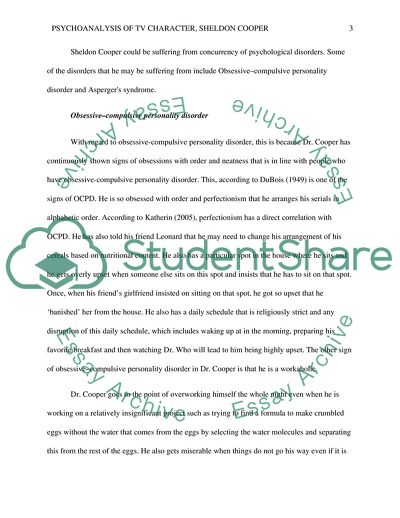Cite this document
(Psychoanalysis of Sheldon Cooper, a TV Character Case Study Example | Topics and Well Written Essays - 3000 words, n.d.)
Psychoanalysis of Sheldon Cooper, a TV Character Case Study Example | Topics and Well Written Essays - 3000 words. https://studentshare.org/psychology/1870856-character-analysis-from-a-movie-or-tv-show-abnormal-behavior
Psychoanalysis of Sheldon Cooper, a TV Character Case Study Example | Topics and Well Written Essays - 3000 words. https://studentshare.org/psychology/1870856-character-analysis-from-a-movie-or-tv-show-abnormal-behavior
(Psychoanalysis of Sheldon Cooper, a TV Character Case Study Example | Topics and Well Written Essays - 3000 Words)
Psychoanalysis of Sheldon Cooper, a TV Character Case Study Example | Topics and Well Written Essays - 3000 Words. https://studentshare.org/psychology/1870856-character-analysis-from-a-movie-or-tv-show-abnormal-behavior.
Psychoanalysis of Sheldon Cooper, a TV Character Case Study Example | Topics and Well Written Essays - 3000 Words. https://studentshare.org/psychology/1870856-character-analysis-from-a-movie-or-tv-show-abnormal-behavior.
“Psychoanalysis of Sheldon Cooper, a TV Character Case Study Example | Topics and Well Written Essays - 3000 Words”. https://studentshare.org/psychology/1870856-character-analysis-from-a-movie-or-tv-show-abnormal-behavior.


